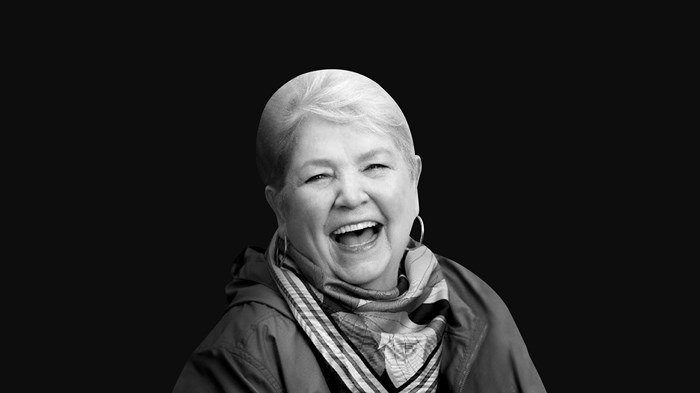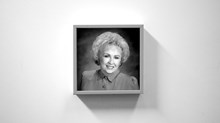
Luci Swindoll, a devotional author and popular speaker known for her celebration of life and commitment to being herself, died this week after contracting COVID-19. She was 88.
Swindoll wrote a popular book on Christian singleness in the 1980s and became one of the first Women of Faith speakers in the 1990s when the organization launched as a counterpart to the men’s ministry Promise Keepers. Swindoll, the older sister of prominent preacher Chuck Swindoll, had a message about God’s grace.
“Legalism is the worst thing that ever happened to the church,” she said. “When I realized that God deals in grace … it set me free to be who I really am.”
It was a theme she returned to frequently as she urged Christian women to find joy and be who God wants them to be, not who others expect them to be. She told jokes and laughed a lot, which she said was a witness to the work of Christ in her life.
“Everything changed because of grace,” Swindoll said. “Now all we have to do is know him, trust him, see what he does with our lives, and love people into the kingdom. I don’t think it’s our place to tell people how to live. … We can’t make people believe, but if they see in the believer love and fun and joy and just the thrill of being alive, they say, ‘What is it they have that I don't have? I want it.’”
Swindoll was born in 1932 in El Campo, Texas, the middle child and only daughter of Earl and Lovell Swindoll. The three kids were Orville, Lucille, and Charles but known by everyone, including themselves, as Bubba, Tutta, and Babe. They grew up in Houston, in a middle-class home of music lessons, elocution, performances, and competition.
As an adult, Swindoll recalled she was jealous of Orville because he excelled at piano and jealous of Chuck because he wowed adults with recitations of memorized poetry. And “everybody liked Babe,” she said.
But her father encouraged her to pursue her own dreams.
“You can go anywhere you want to go, achieve anything you like,” he told her, according to her 2002 memoir I Married Adventure. “You just have to line up your desires with the Lord’s and go.”
At about age 12, Swindoll decided she wouldn’t get married. “Settling down,” as her mother described it, felt like cutting herself off from a world of interesting things, thoughts, and experiences. At the time, she had never met an adult woman who wasn’t married, and not getting married wasn’t presented as an option, but she felt—with her father’s encouragement—that she could make that choice.
Swindoll recalled that her father told her she would never be alone because God was with her, and she took that to heart.
The rest of the world was not so understanding, though, and in high school Swindoll experienced a tremendous amount of pressure from her peers and her mother to be in a relationship. She watched as other girls graduated, got married, and started having children. She wanted to go to college.
Swindoll compromised. She got engaged to a young man in 1950, at the age of 18, and went to Mary Hardin-Baylor College, a Baptist women’s school, with a ring. Within just a few months on campus in Belton, Texas, Swindoll realized she’d made a mistake. The world was an enormous place, and she didn’t want to settle down. She ended the engagement, to the great disappointment of her mother.
“I learned it was okay to be myself and like myself—and survive—in spite of my mother’s strong disapproval. She had no category for me because I thwarted her domestic dreams for her only daughter. What was to become of me if I ended up without a husband?” Swindoll wrote.
At Mary Hardin-Baylor, she studied art and opera and learned to sing in Italian, French, and German. Her teacher, Florence Bergendahl, was the first unmarried woman she knew, and Swindoll was thrilled to see a woman with a life and home full of art, music, and souvenirs of world travels.
Swindoll moved home after college and found her parents attending a new church with a pastor who had a degree from Dallas Theological Seminary. His sermons were clear and interesting—and filled with grace.
“We had attended a church that taught little more than that there was a rule for everything, defensible by Scripture,” she recalled. “We knew little to nothing of the grace of God, freedom in Christ, or theology that endorsed individuality and liberty. In my circle of relationships, everyone told everyone else how to live, what to think, and where to enlist.”
Swindoll saw her mother soften and found herself falling in love with Jesus. She took Bible classes at the church four nights a week, deepening her faith. She said she learned the core truth that Jesus did not only want people to have eternal life, but abundant life.
“I am saying that once God’s incorruptible truth became the protoplasm of my soul, I knew without a doubt that he would make a way for me to be truly myself,” Swindoll said.
At 25, Swindoll moved away from home and got a job as a cartographer for Mobil Oil in Dallas. She worked there for 30 years, retiring as the manager of the Right of Ways and Claims Department for Exxon Mobil.
She also performed in the Dallas Civic Opera, taking a role in 34 operas from 1959 to 1973. Her favorite was Lucia di Lammermoor, which tells the tragic story of a woman caught between feuding families. Swindoll saved $25 per week for five years to travel to Milan to see the opera there and loved the experience so much she started traveling regularly.
She felt that God told her, “I have given you life, Luci. It’s a gift. Now, I want you to live that life by embracing the whole world.”
Swindoll wrote a book about grace, joy, singleness, and “embracing the whole world” in 1982, after her brother Chuck introduced her to an editor from Multnomah Books who asked her if she liked being single. The book was called Wide My World, Narrow My Bed. She went on to write more than half a dozen other titles, including Notes to a Working Woman; After You’ve Dressed for Success; You Bring the Confetti, God Brings the Joy; and Life! Celebrate It.
In 1996, Swindoll joined her close friend Mary Graham and four other Christian women—Patsy Clairmont, Thelma Wells, Sheila Walsh, and Marilyn Meberg—for a speaking tour with a new group called Women of Faith. The six sat on a stage like it was their front porch, and talked openly and humorously about life, struggles, and the healing love of God.
The first events drew about 2,000 women, but then the crowds quickly grew to 4,000, 6,000, and then 10,000 and 20,000. Swindoll, who often told funny stories at the Women of Faith events, was initially surprised to see the response. In her mind, they were “just stories.” Then she saw they were responding to the message of grace.
“There's nothing legalistic about it,” she said. “They feel like they can be themselves, they can dress comfortably, and everybody is sort of revived.”
The Women of Faith events continued until 2016. Some people wanted it to keep going, but Swindoll said everything needs to come to an end. She believed if you were fully yourself and did what you wanted to do, you could be happy when you were finished—an approach she also took to her own life.
“When I’m with the Lord face to face,” Swindoll said, “it is my own life that I lay down and not the prefabrication of one who always tried to be somebody else.”

Support Our Work
Subscribe to CT for less than $4.25/month


















